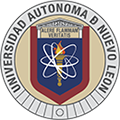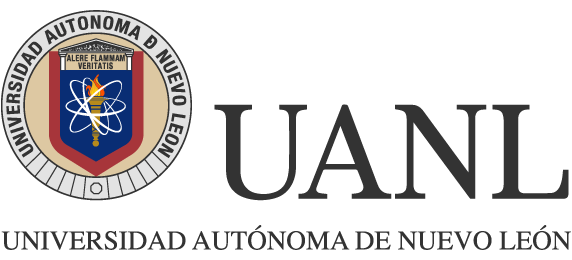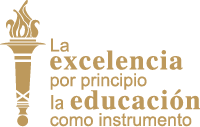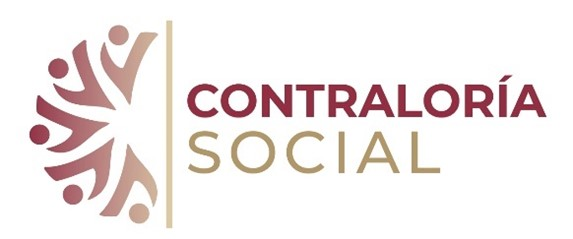Share:
B.s. in Genomic Biotechnology
School of Biology
Admission profile
Applicants to this academic program must have the following qualities:
- Basic knowledge of biological sciences, research methodology, study techniques, social sciences, and humanities.
- Technological and communication skills.
- Basic knowledge of a second language
- Observation, analytical, and creativity skills.
- Interest in logic, math, dialogue, and writing skills.
- Concern about self-learning, and teamwork.
- Understanding and practicing values such as ethics, and social responsibility.
- Respect for nature and interest in preserving the environment.
Admission requirements
Academic
- Have successfully completed high school or equivalent studies
Legal
- Meet all criteria established by UANL's current standards and procedures.
Testing
- Take the Admission Test EXANI-II, established by the National Center for the Evaluation of Higher Education (CENEVAL).
Program-specific
- Take the psychometric, general skill, and English tests.
Graduation profile
Purpose:
To educate bachelors of biotechnology and genomics aware of the country’s social needs and ready to face challenges and provide the conditions for a good life. Bachelors will be able of developing products in the areas of health, agriculture, livestock, aquaculture, industry, and environment. Graduates have a comprehensive profile in managing genome sequences through applied research to create and improve biotechnology products of high quality always promoting respect for nature and sustainable development in a global environment.
General skills
Instrumental skills:
- Following self-learning strategies at the different levels and fields of knowledge, which enables effective decision-making in personal, academic, and professional areas.
- Using logical, mathematical, iconographic, verbal, and non-verbal language for the ecumenical interpretation and expression of ideas, feelings, and theories.
- Employing information and communication technologies for accessing information that eventually becomes knowledge as well as promoting learning and collaborative work through innovative techniques, having a constructive involvement in society.
- Mastering the mother language in spoken and written form, learning to communicate correctly and adapt messages to specific contexts in order to disseminate ideas and scientific knowledge.
- Analyzing natural events and social movements through creative logical thinking in order to propose relevant decisions according to social responsibility and the graduate’s own professional field.
- Speaking a second language, especially English, for proper communication in common, academic, professional, and scientific settings.
- Making academic and professional proposals based on the best global practices in different disciplines to encourage collaborative work.
- Applying new and traditional research methodologies for personal development and knowledge generation.
Personal and interpersonal skills:
- Committing to cultural and social diversity while complying with the integration principle to promote spaces of harmonious coexistence for local, national, and international contexts.
- Facing emerging social challenges with a critical approach and academic-professional commitment in order to consolidate the general wellbeing as well as sustainable development.
- Practicing UANL values in personal and professional settings: truth, equity, honesty, freedom, solidarity, respect for life and others, peace, respect for nature, integrity, ethics, and justice, contributing to a sustainable society.
Consolidating skills:
- Making innovative proposals based on a holistic understanding of reality to help overcome global challenges.
- Taking a dedicated leadership in encouraging significant changes to fulfill social and professional needs.
- Solving problems in academic and professional areas through specific techniques for proper decision-making.
- Adapting easily to uncertain social and professional environments to have better living conditions.
Specific skills
- Interpreting molecular diagnostics and genetic modification
- Designing strategies of detection and genetic modification for the development of services and products in the areas of health, agriculture, livestock, aquaculture, industry, and environment.
| Areas | Job |
|---|---|
| Health Hospitals, health research, and pharmaceutical industry. | Molecular diagnostics of genetic disorders. Forensic medicine. Genetic and regenerative therapy Designing microorganisms for the treatment of health problems (enzymes, antiobiotic, vaccines, new medicines) Medication administration using nanotechnology. Drug response using pharmacogenomics and pharmacogenetics |
| Agriculture, livestock and aquaculture Food sector, veterinary industry, and private and public institutions of research. | Transgenic plants Production of biofertilizers and biopesticides Improvement of agricultural products Transgenic animals Animal feeding and improvement of industrial processes using microorganism Plant and animal health |
| Environment Government institutions | Design and produce bioremediation systems based on genetically modified organisms. |
Graduation requirements
Academic
- Have completed the 220 total credits of the academic program.
- Have carried out the mandatory Learning Service.
- Master a second language other than Spanish.
Legal
- Meet all criteria established by UANL's current standards and procedures.
Program-specific
- Have a written acknowledgment of book donation to the library of the school.
Accreditations
National
Name
CIEES Level 1
Accreditor
Interinstitutional Committees for the Evaluation of Higher Education
Accreditor's acronym
CIEES
http://www.ciees.edu.mxNational
Name
Accreditors that belong to the Council for the Accreditation of Higher Education (COPAES)
Accreditor
Accreditation Committee of Biology
Accreditor's acronym
CACEB
http://www.caceb.com/Validity of accreditation
18-01-2023
Location
Posted by: Dirección del Sistema de Estudios de Licenciatura




